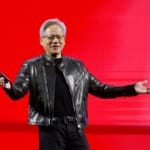Honda and Nissan explore merger to tackle challenges and grow together
Honda and Nissan are exploring a US$50 billion merger to combat Chinese competition, leverage factory capacity, and expand into larger SUVs.

The automotive world is abuzz with news of a potential merger between Honda and Nissan. This move could mark one of the industry’s biggest transformations since Stellantis was formed in 2021. However, combining two automotive giants is exciting but comes with significant risks. During a Tuesday roundtable discussion in Las Vegas, Honda executives shared insights into the merger’s potential benefits and challenges, particularly in light of the growing competition from Chinese automakers.
Table Of Content
Why merging with Nissan is critical for Honda
Honda’s primary motivation for exploring this merger is the rapid rise of Chinese automakers, especially in the electric vehicle (EV) and autonomous driving sectors. China’s dominance is becoming harder to ignore. Honda CEO Toshihiro Mibe highlighted this concern when the memorandum of understanding for the merger was announced in December. “The rise of Chinese automakers has changed the car industry significantly… By 2030, we need to build capabilities to compete, or we risk falling behind,” Mibe said.
The stakes are indeed high. According to S&P Global Mobility, the global EV market is projected to grow by nearly 30% year-on-year, with 89.6 million new EVs expected to sell in 2025. Similarly, the autonomous vehicle market is anticipated to soar from US$60.3 billion in 2025 to US$448.6 billion by 2035. Honda and Nissan need to act fast and ensure their vehicles meet consumer demands to remain competitive.
Honda’s partnership with Nissan is seen as a way to cut costs, streamline operations, and bolster its ability to compete with the influx of new players. The merger discussions began last year, and while no final decisions have been made, both companies are exploring ways to combine resources effectively.
Leveraging Nissan’s factories and large SUVs
Honda executives believe Nissan offers valuable assets that could complement Honda’s existing strengths. One key advantage is Nissan’s large SUVs, such as the Armada and Pathfinder, which could allow Honda to expand its hybrid and EV offerings into the more significant vehicle segment. While Honda’s hybrid technology is well-established in midsize models like the CR-V and Accord, it hasn’t yet been adapted to larger vehicles. By collaborating with Nissan, Honda aims to address this gap.
Another benefit is Nissan’s underutilised factories. Honda’s US plants are operating at maximum capacity, and Nissan’s excess production capabilities could provide much-needed flexibility to meet growing customer demand. “We have significant labour and development costs, so shared operations with Nissan would help us,” said Noriya Kaihara, Honda’s director and executive vice president.
Despite the optimism, Nissan’s recent struggles are a concern. The company reported a 90% decline in earnings last year and was forced to lay off thousands of employees. Former Nissan CEO Carlos Ghosn has criticised the merger talks, calling it a “desperate move” driven by Nissan’s financial woes. Nevertheless, Honda sees an opportunity to turn Nissan’s challenges into a strategic advantage.
Navigating tariffs, subsidies, and the future of EVs
Another challenge discussed during the roundtable was the impact of potential tariff changes and the loss of EV incentives in the United States. President-elect Donald Trump has hinted at imposing tariffs on imports and cutting federal subsidies for EVs, which could significantly affect production costs and consumer prices. Honda is prepared to adapt by potentially shifting production to Japan or other locations if necessary, although such changes would be costly.
Despite the uncertainties, Honda remains committed to electrification. New EVs under the Zero series are planned for release next year, with a long-term focus on sustainable mobility solutions. “For the long term, EVs are the solution for the future, and that vision will not change,” Kaihara stated.
The potential merger between Honda and Nissan represents a bold step in addressing the challenges posed by a rapidly evolving automotive industry. By combining resources, leveraging each other’s strengths, and preparing for an electrified future, the two companies hope to maintain their dominance in the global market. However, with significant hurdles ahead, the road to success will require careful planning and collaboration.
















